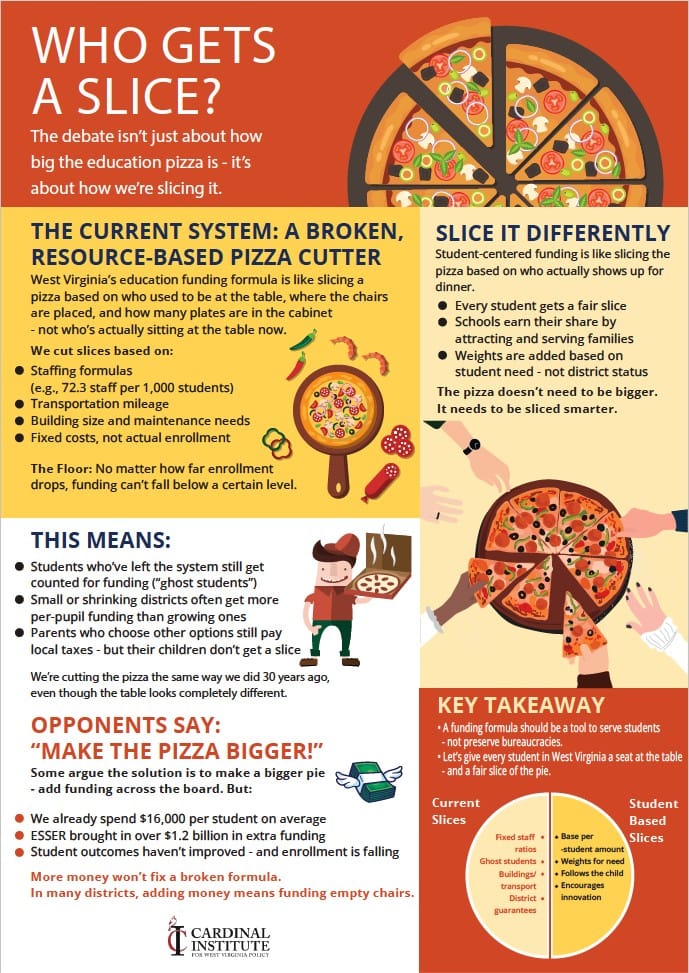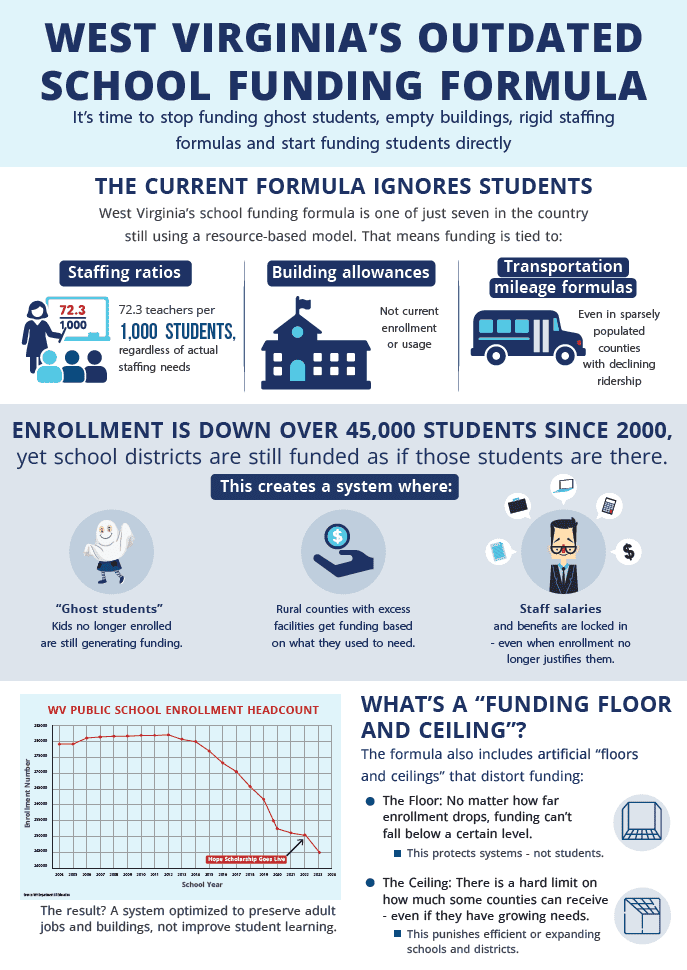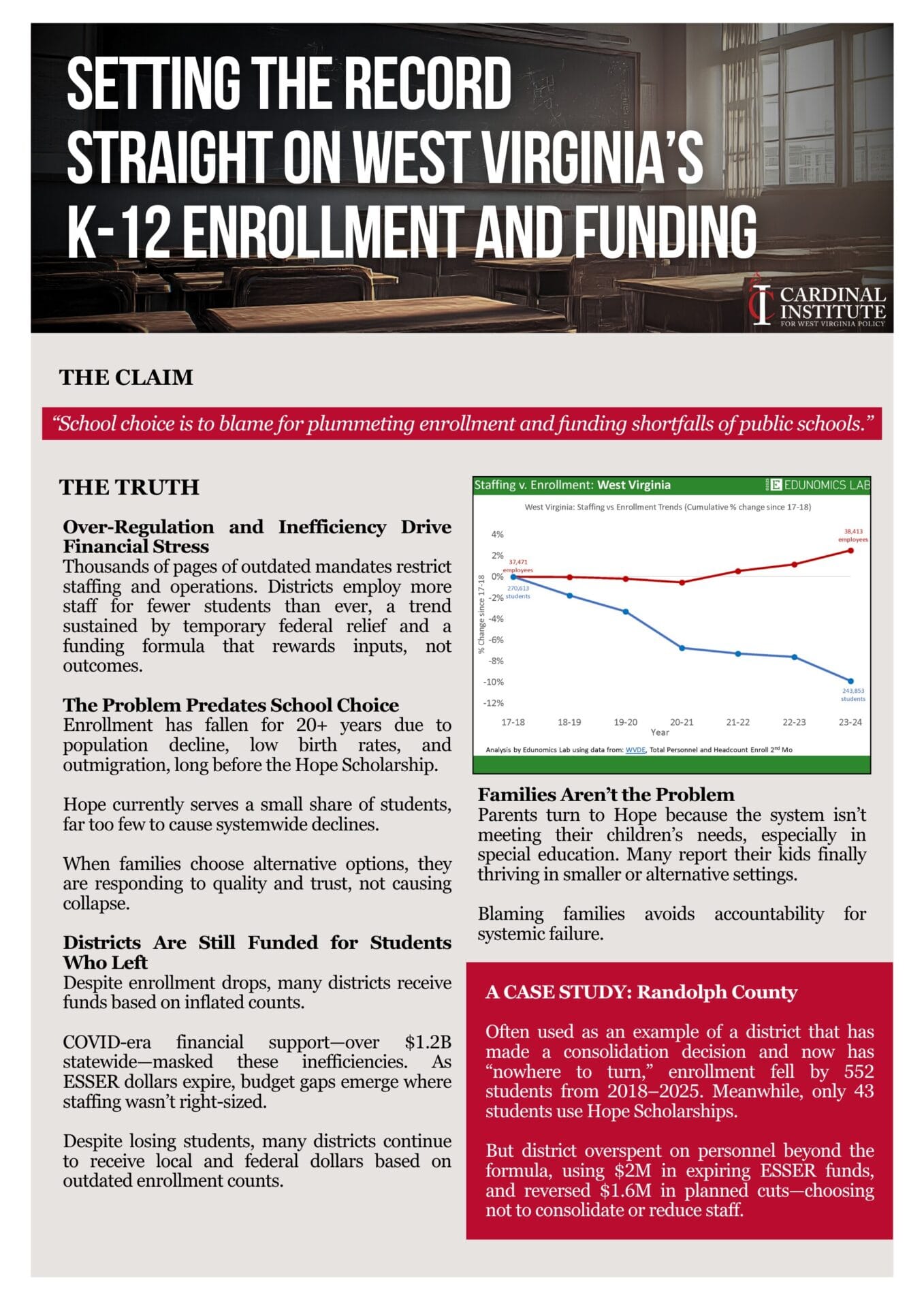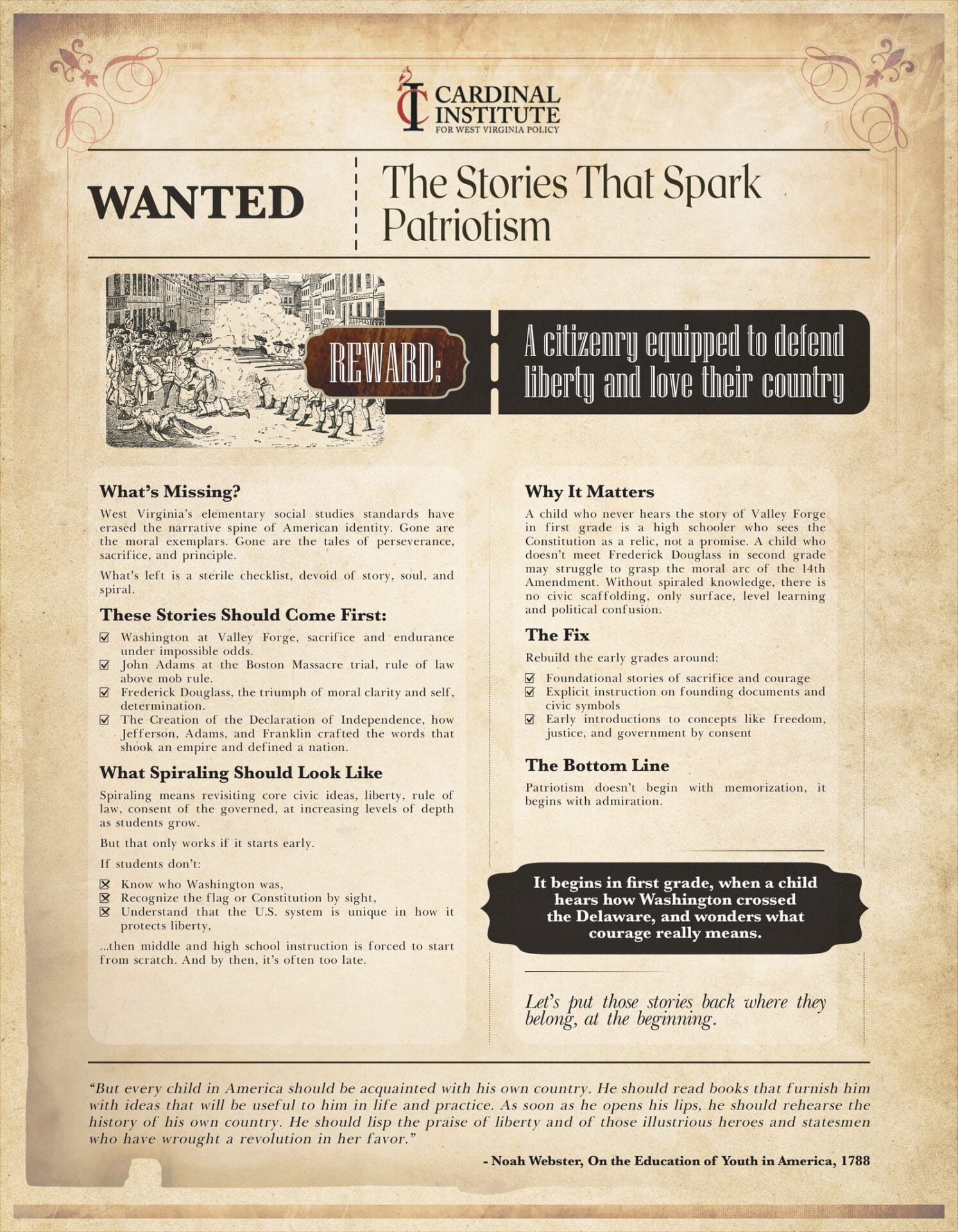Career Education Gets People Jobs
Cardinal Team
Apprenticeships and Career Education Get People into Jobs
Do you need a college degree for a great career? Certainly not.
February is CTE Month, a time to think about how career and technical education can be a fast track to jobs and community development.
Vocational programs can prepare students for the jobs that actually exist in the community. Wheeling Park Patriots, for instance, can learn carpentry, graphic design, computer systems repair, or a dozen other subjects.
West Virginia has room for many more such schools—public, private, and charter.
Education Savings Accounts Could Improve Access to Career Education
While tuition at private technical schools can be a challenge for parents, the investment is worth it. And if the state passes education savings accounts (ESAs) this year, parents will be able to afford it.
Richer parents already “pay twice” for private schools, since they already pay taxes for public schools. Poorer families too often can’t afford an alternative school that might be better for their kids.
It is only fair for the state to help poorer families have an equitable opportunity to transition to private schools like their richer neighbors.
ESAs are a great way to provide that opportunity. They give parents choice over how state education funds are spent on their own kids’ education. Parents can use the money for tuition, tutors, curriculum, and much more.
There is already an ESA bill in front of legislators this year. The “Hope Scholarship” program will give parents about $4,500 per year in education funds for every child who is looking for a place to learn that’s better suited to him or her than their local public school.
Each child is unique, and while a public school might be best for many students, many others need an alternative. The money for a child’s education should follow that child, and that is what the Hope Scholarship offers.
CTE Can Help Decrease Student Loan Debt
As for vocational education in college, too many people leave college without a degree—and in debt. The total debt for postsecondary students—degree or not—is pushing $2 trillion.
Imagine if students had started an apprenticeship instead. After a couple of years, they would have no debt but two years of real-life experience in a lifelong career.
Take journalism, for instance, a more and more challenging area for jobs. What if you spent two years at The Intelligencer, learning the trade from experts, and learning all the ins and outs of the area?
When a job opens, you might be far ahead of the person who spent two years in Morgantown reading books about journalism instead of learning about the people where you live.
At the federal level, legislators are working on how to improve apprenticeship opportunities across the country, more than 75 years after the original National Apprenticeship Act. Although the current bill to amend the act would provide billions of dollars for new apprenticeships, that comes at the cost of a lot more control in Washington, where bureaucrats have little to no idea what we need most in West Virginia.
Besides, our state government already has the Apprenticeship in Motion program, which partners with our Community and Technical College System and many others around the state.
CTE is about pursuing a passion. If you love craft beer, there’s even an app(renticeship) for that. West Virginia has lots of reasons to invest in our own people and our own job growth, and these efforts will pay for themselves.
Hope Scholarships and apprenticeships after high school will get us there.
Adam Kissel is Senior fellow at the Cardinal Institute for West Virginia Policy
Learn More About Career Education
Learn more about career education this CTE month and beyond by reading about it on our blog.







